It appears sexual wellness has finally shaken its taboo status, evolving from a niche category to a mainstream opportunity finally gaining the attention of investors and retailers, giving rise to a new wave of brands capitalizing on the shift. According to Spate, more than 270 brands are being searched in the sexual wellness space. While the floodgates may have opened, providing the fuel for the sexual wellness trend to get real traction, fearless founders have been working to define the whitespace opportunity for over a decade.
Early pioneer Jimmyjane released its first vibrator in their Pleasure to the People series in 2009, a design collaboration between founder Ethan Imboden and designer Yves Behar raising $8.3 million in capital by 2010.
In 2013, Imboden predicted, "We're approaching the day when buying a vibrator will be as matter-of-fact as picking up a new electric toothbrush. Along the way, we're seeing the hesitations in the media and society at large melt away, making room for a more informed discourse, a more consumer-centric marketplace, and ultimately, much happier end users."
Ultimately Jimmyjane was sold to Diamond Products, a pleasure product-centric holdings company. The brand that worked so hard to take design-centric, approachable, body-safe sexual wellness products mainstream ended up being absorbed into the channel it worked so hard to disrupt. They took vibrators from sleazy to chic but fell short of making them mainstream—they were simply too early.
Fast-forward a decade, sex is no longer the taboo topic it once, content is unfiltered, and as a culture, we are beginning to speak more openly about sexuality, particularly female pleasure. Sex toys have been repositioned under the umbrella of sexual wellness and are available at retailers from luxury to mass and everything in between merchandised in the same space as beauty, health, and fitness.
We're at a crucial and interesting point in society where the conversations around sexuality expression are actually moving a bit faster than before and may meet the pace of tech," said American sex-tech expert and podcast host Bryony Cole. "The secrecy and shame around sex is slowly being dissolved. We still have a long way to go but it's starting to catch up with the pace of tech now. It's a ripe playing field for entrepreneurs."
The Size of the Prize
From Niche to Mainstream
Earlier pioneers understood the opportunity but had to embrace the traditional "sex channel" for distribution, balancing the need for revenue with changing perceptions and defining the whitespace opportunity in mainstream distribution channels. Sex products are becoming normalized and even glamorized by a new generation of brands running a DTC playbook to launch while positioning themselves squarely at the intersection of beauty and wellness, reinventing the personal care category.
This new generation of "sex" brands have adopted the sanitized language of wellness, emphasizing the health benefits of sex, creating a space for community building through education, and wrapping it all in pitch-perfect, well-executed design and marketing. This formula has resulted in an offering commercially acceptable and accessible to women who may have been intimidated by or uncomfortable with the fetishized image of the sex shop where these products were historically available.
The destigmatization around period care and menopause dovetail with the emergence of the sexual wellness category, creating a more robust and nuanced conversation around women's health.
The Role of Retail
As with most whitespace endeavors, a key to unlocking the full opportunity requires representation in traditional retail channels. The opportunity for retailers in this category has always existed, but historically, buyers have been hesitant. Some visionary merchants embraced the early pioneers like Jimmyjane but struggled with where to merchandise these brands, which is often the case when defining whitespace opportunities.
Goop tackled the topic of sex through the lens of wellness with its enthusiastic embrace of jade eggs, vaginal steaming, and the launch of a candle named This Smells Like My Vagina, creating controversy along the way that normalized the discussion about intimate body parts and functions. Where Gwyneth went, others followed.
Products promoting sex are no longer tucked away—remember the back room in beauty supply store Ricky's NYC—today they are merchandised front and center. Online lifestyle and beauty retailers like Cult Beauty and Feelunique paved the way, creating destinations for this new category of brands. As the category became palatable to the mainstream, brick-and-mortar retail followed suit, holistically integrating sexual wellness into their assortments and reshaping the concept of personal care. It’s hard to find a retailer today that isn't carrying sexual wellness products in their product mix. According to recent Spate search numbers, consumers are increasingly turning to Target and Dollar General for sexual wellness products, with a 15.7% increase and 14.9% growth since last year, respectively.
The Category Drivers
As with many trends, COVID-19 accelerated the traction of the sexual wellness category and these stigma-busting start-ups. The pandemic put sex lives under the microscope, shifting the conversation around sexual wellness and pleasure. As lockdown restrictions lift, retailers are seeing a "sexplosion" from post-pandemic consumer interest in intimacy.
In early May, Boots UK reported sales of condoms almost doubled with a 98% increase in sales, while searches online for condoms increased more than 30% and searches for sex toys increased 50% year-over-year. Competitor Superdrug witnessed a 65% increase in online condom sales and a 232% increase in lube and toy sales online.
Millennials and Gen Zers are responsible for the massive change in the perception of the sexual wellness category, buying these products for themselves through the lens of self-care. Even though young adults generally have less sex, Gen Zs have a relatively open-minded attitude towards sex. However, it’s not only younger generations embracing sexual wellness. Gen X founders are unflinching in addressing the lack of information and products addressing the 34-66 (depending on who you ask) symptoms of menopause, building brands and communities for women to take control of this life stage.
The cross-generational focus on female health, preventative wellness, and holistic care has given rise to an influx of products and services focused on vaginal care, from washes, wipes, and moisturizers to dermatological procedures and spa services, all falling under the umbrella of personal care and making up the assortments of sexual wellness brands.
Technavio attributes the category's growth to five key drivers: mainstream exposure in the media, ease of purchase and availability, shifts in social norms, a marked increase in the number of start-ups in the category, and shifting perceptions of investors.
Follow the Money
In March, UK-based sex tech specialists Healthy Pleasure Group launched Amboy Street Ventures, the world's first venture capital fund focused solely on sexual health and technology start-ups. Its first two investments were in the sexual wellness brand Dame and the menopause telemedicine clinic Gennev. According to Pitchbook, the number of VC deals in the femtech space, which includes sexual wellness consumer brands, in 2019 reached an all-time high of 76 deals representing $558 million in investment. As of August 2021, there has been $812 million invested into 61 deals.
Investors like patterns and often back businesses that look, sound, or feel familiar. The shifts in consumer behavior and attitudes toward sex and sexual health coupled with the increased opportunity in traditional retail have motivated investment into what has evolved into the sexual wellness category. Investors claiming a trend has become a prerequisite for creating the tipping point for going from niche to mainstream. We are witnessing such an inflection point in the burgeoning sexual wellness category. While the category is broad for our purposes, we're focused on deal flow related to brands sitting squarely at the intersection of beauty and wellness.
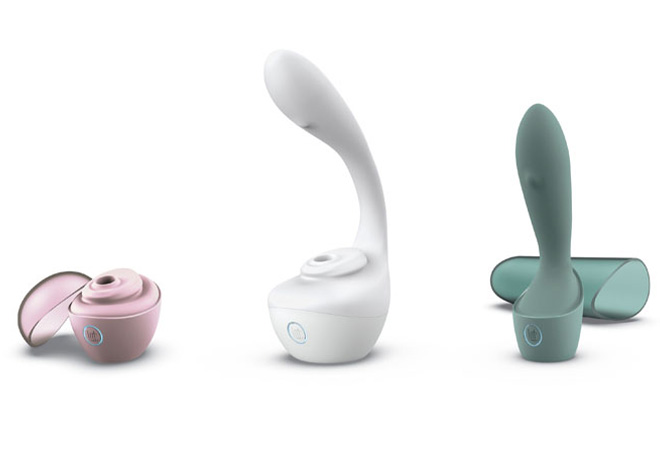
Lora DiCarlo: Lora Haddock founded gender-inclusive, sex-positive company Lora DiCarlo in 2017 with the aim of engineering pleasure-tech products that will revolutionize female sexual health. The first device, called Osé, was developed in partnership with Oregon State University's Robotics & Engineering Lab and launched in the second quarter of 2019. Actress Cara Delevingne joined Lora DiCarlo as a co-owner and creative advisor at the end of 2020.
Funding: In January 2021 the business secured $3.5 million in funding led by Republic Labs, with participation from Romulus Capital, VU fund, River Bend Capital, and Gaingels. The brand raised $3.1 million in previous funding rounds, bringing the total raised to $6.6 million.
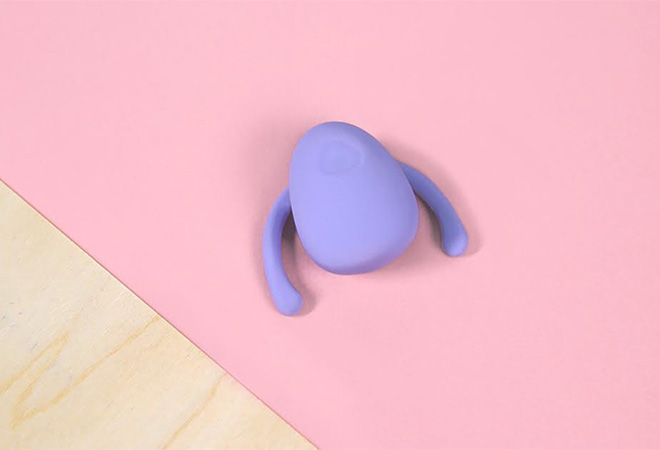
Dame Products was founded in 2014 by Alexandra Fine (a sexologist with a Masters in Clinical Psychology from Columbia University) and Janet Lieberman-Lu (an MIT-educated mechanical engineer). The brand has designed 10 tools to close the pleasure gap by creating the most technologically progressive sex toys in the business. The brand experienced +100% growth year-over-year in 2020.
Funding: The brand raised $4 million in seed funding in February 2021, led by Listen with participation from Chingona Ventures, The Community Fund, Her Capital, HP Reformation Ventures, IgniteXL Ventures, Joyance Partners, and angels such as Christiane Lemieux, Ashley Hartman, Kirstan Barnett, and Sonia Nagar. The company previously relied on crowdfunding, raising less than $1.5 million since its launch six years ago.
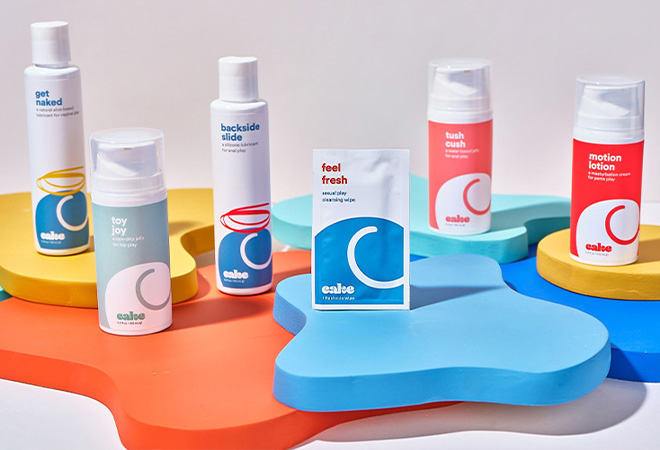
Cake was founded in 2018 by Hunter Morris and Mitch Orkisis with the mission to help the world have more fun sex. The brand's assortment consists of lubricants, toys, and sexual hygiene products designed for specific types of sexual enjoyment, inspired by real people, and tested across the spectrum of sexual preferences before launch. The brand launched in 4,000 Walmart stores in July 2021.
Funding: Cake raised an additional $4 million in seed funding, led by venture capital firm Lerer Hippeau with participation by Sugar Capital, Brand Foundry Ventures, Selva Ventures, Silas Capital, Red Antler Ventures, Gabby Slome (co-founder of Ollie), Brian Bordainick (co-founder of Starface), and Kate Wallman (angel investor). In June 2020, the brand raised $1.435MM in seed funding with backers including Brian Spaly, co-founder of Trunk Club & Bonobos, Roth Martin, co-founder of Rothy's, Brand Foundry Ventures, Finn Capital, and others. The total capital raised to date by the business is $5.7 million.
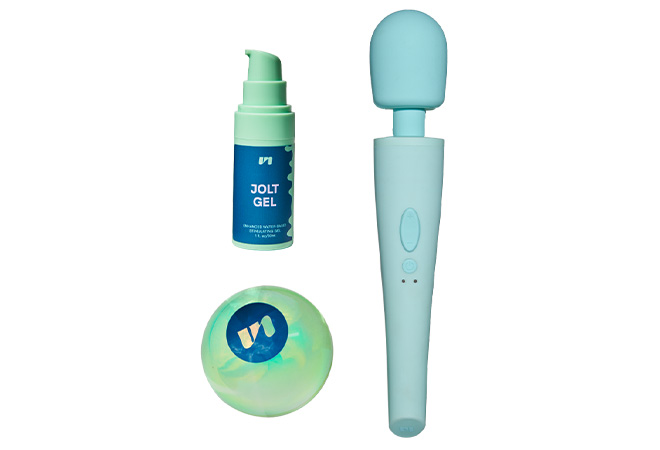
Unbound was founded in 2014 by Polly Rodriguez and Sarah Jayne Kinney to empower women to own their sexuality. The brand started as a quarterly subscription box, an online shop selling third-party products and magazine. The brand remains DTC but has evolved to selling its own range of vibrators, lubricants, and accessories.
Funding: According to Crunchbase, the business has raised a total of $3.7 million from investors like Founders Fund, Slow Ventures, Arena Ventures, SoGal Ventures, and others.
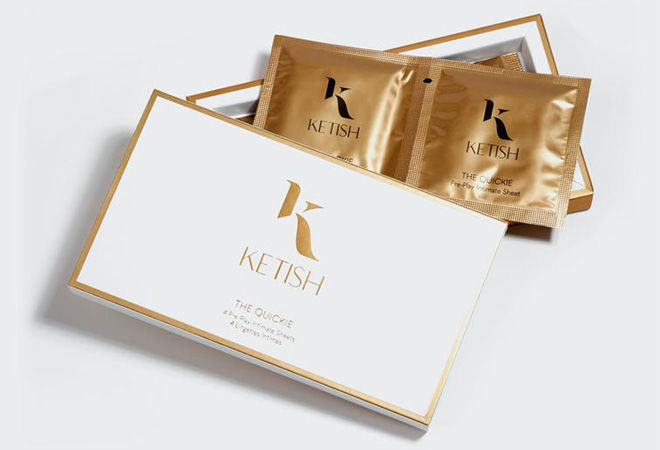
Ketish was founded by Emaan Abbass, a former product developer at Huda Beauty, and aims to address a gap in the intimate care and feminine wellness industry, with products developed keeping women's needs and desires top of mind. The brand launched online and on Hudabeauty.com; the brand also has brick-and-mortar ambitions.
Funding: Huda Kattan made the first investment from her angel fund in the brand.
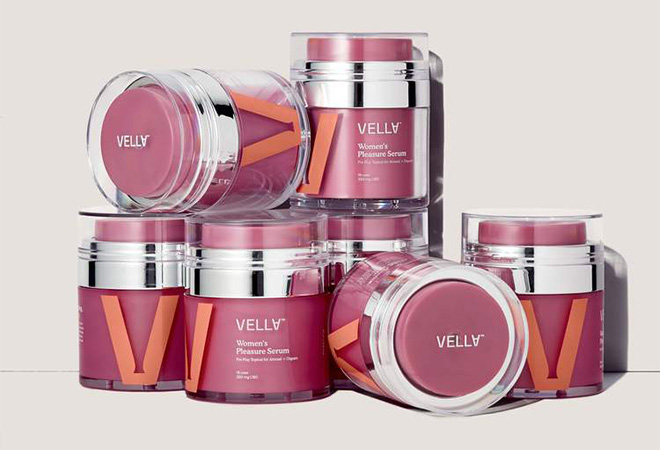
Vella Bioscience is a femtech company driven to put science in service of every woman's sexual empowerment. Founded by a team of medical researchers, scientists, and industry experts, Vella Bioscience leads the intersection of proprietary science and luxury beauty for sexual wellness. The business launched with its flagship, category-first product, Vella Pleasure Serum, which is designed to give women power over their pleasure.
Funding: Vella Bioscience closed a $7 million seed II funding round, anchored by Aaron Fleck & Associates. The funding round, which was heavily oversubscribed, puts Vella Bioscience at over $50 million post-money valuation. WWD reported the business is expected to do $25 million in sales in 2022, according to industry sources.
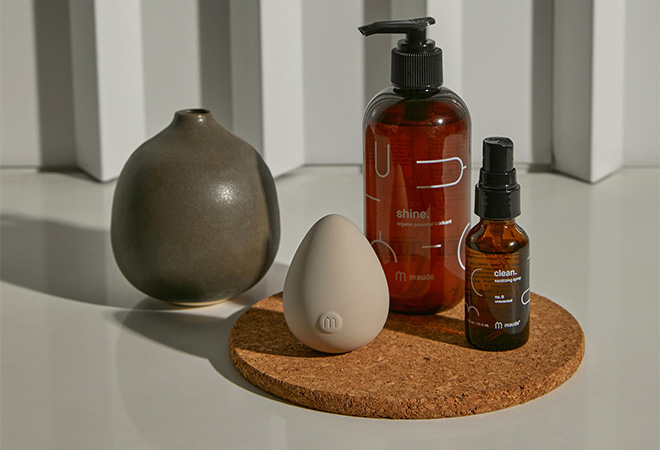
Maude: Founded by Éva Goicochea in April 2018 after successful careers in healthcare legislation and brand strategy. As a brand built on quality, simplicity, and inclusivity, Maude is a modern intimacy company focused on sexual wellness for all people. The brand launched with four sex essential products and expanded to bath and body products, taking intimacy outside of the bedroom. Forbes reported the company's current annual revenues are in the mid-to-high seven figures, and growth of over 200% year over year. The brand expects to become profitable in 2022.
Funding: In July 2021 Maude raised an oversubscribed $5.8 million Series A funding led by True Beauty Ventures with participation from UK consumer fund True, William Morris Endeavor, and Fable Investments.The company has raised more than $10 million in capital over four rounds of funding to date from investors like RRE, Cassius, Tune House Capital, Outbound Ventures, Vice Ventures, and Patina Brands. Angel investors included Benjamin Millepied, Steven Alan, and Cédric Aumonier.
Exits and Mergers
In August, European-based sex-toy company Germany Wow Tech Group and UK-based online retailer Lovehoney merged in a $1.2 billion deal, creating the world's largest sexual wellness company. Together they will be known as the Lovehoney Group and are expected to be profitable with projected sales of more than $400 million in 2021, representing double the combined 2020 volume. Lovehoney owner Telemos Capital will be lead investor in the newly formed LHG, with WOW Tech investor CDH Investments staying on board as a minority investor alongside Lovehoney co-founders Neal Slateford and Richard Longhurst.
Queen V, the taboo-busting brand launched by Lauren Steinberg in partnership with Brandable, brought vaginal health to the shelves of Walmart in 2018. Just three years later Reckitt Benckiser acquired the brand for an undisclosed amount to add to its RB's Health Global Business Unit, alongside leading sexual well-being brands KY and Durex.
The Future
Sexual wellness has struggled to shed its "taboo" label and being considered too niche, but the confluence of investors writing checks and retailers adding the category to their assortment has the category gaining traction and becoming integrated into a more holistic model of health and wellness.
Female sexuality, intimacy, and self-pleasure is often met with shame, but the openness and transparency about sex that drives the Gen Z cohort along with addressing the needs of more mature consumers provides opportunities for products marketed towards all genders, sexual orientations, and ages.
China is one of the world’s largest exporters of sexual wellness products, accounting for 70% of sex toys, but now manufacturers are reorienting their businesses to meet the increasing demand from the domestic market. With 180 million singles, the Chinese "love" market has tremendous potential with the online sexual wellness sector, estimated by CBN Data to have surpassed $9.2 billion last year, and growing 50 percent year-over-year.
With investors and retailers both in alignment on the sexual wellness trend, the environment for start-ups has never been better, but the category has become competitive. Brands that manage to straddle sexual pleasure with the broader opportunity of creating products that can live in personal care assortments will have the most potential for growth.